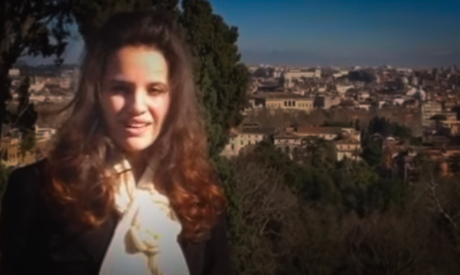Catholic women attending the summit of bishops at the Vatican on the Amazon region praised the climate of inclusivity and openness ushered in by Pope Francis but insisted that equality demands they also have a right to vote.
“As many other religious women, we believe we have come to the point that our superior generals can have a vote, same as a superior general of the brothers,” said Sister Birgit Weiler during a news conference Friday (Oct. 11).
Weiler is a theologian with the Medical Missions Sisters, has been active in promoting the rights of indigenous communities in the Amazon and was tapped by Pope Francis to be an expert for the synod.
“There is no real reason why not,” she added, stating that since “religious women are equal” to male religious orders, “it would be good” for both to be able to voice their opinion through their vote.
While the issue of gender equality has been a cause for constant criticism in the Catholic Church, the debate has escalated to a new level under Pope Francis.
During the 2018 synod of bishops on young people, faith and vocational discernment, for the first time Francis allowed mother superiors of religious orders to attend.
At that same bishops’ summit, the male superior general of a religious order — though not a priest — was allowed to vote, raising the question of whether ordination was a necessary prerequisite for voting at the synod.
That question has resurfaced at the 2019 synod and has reinforced appeals that women who lead religious orders be allowed to vote.
“I am really grateful to Pope Francis and aware of the steps he is taking to make it possible,” Weiler said, noting that 35 women, lay and religious, are attending the proceedings at the synod.
“This is already a significant step forward and I want to honor it.”
Many bishops and cardinals at the event “really understand us women” and “want things to change.
She noted that “there is a very open atmosphere” at the synod, which during the second week will have participants divided into smaller working groups, called circoli minori, to allow deeper discussion and reflection on the topics addressed during the opening remarks and presented in the working document.
According to Weiler there is no “clerical attitude,” and women are encouraged to speak about how they feel within the church. This same sentiment, she said, is shared by other women attending the synod in other groups who believe there “is a more open atmosphere, so more critical questions may be, respectfully, put on the table.”
She also noted that many bishops and cardinals at the event “really understand us women” and “want things to change.”
Pope Francis has fostered a synodal approach, which promotes an inclusive and all-encompassing dialogue within the church. For Weiler, “that means you also have to have more women in positions of leadership,” which doesn’t necessarily imply the ordination of women to the priesthood or the diaconate.
Women play an outsized role in the Amazon region; many religious sisters work closely with the cut-off indigenous populations that inhabit it.
There are many spaces, at an organizational or pastoral level, that could benefit from female leadership, she said, and to help determine the best policies going forward.
But as the number of priests dwindles in the Amazon, women might be called on even more.
The drop in vocations and the shortage of priests working in the Amazon forest, which extends over thousands of miles and nine countries, has contributed to a “religious transit” where many indigenous peoples choose evangelical churches over Catholic ones, according to Bishop Joaquín Pertíñez Fernández of Rio Branco, Brazil.
“There are many reasons why people go from one religion to another,” he told journalists at the news conference. “Among the reasons is welcoming and care, the response to the needs of the faithful.
“Due to the lack of priests, we don’t have the preconditions to be present everywhere. There are religious gaps that we as Catholics cannot fill, and others come to occupy them,” he added.
Sources
- Claire Giangrave is Vatican Correspondent for Religion News Service.
- First published in RNS. Republished with permission.
- Image YouTube

News category: Analysis and Comment.




